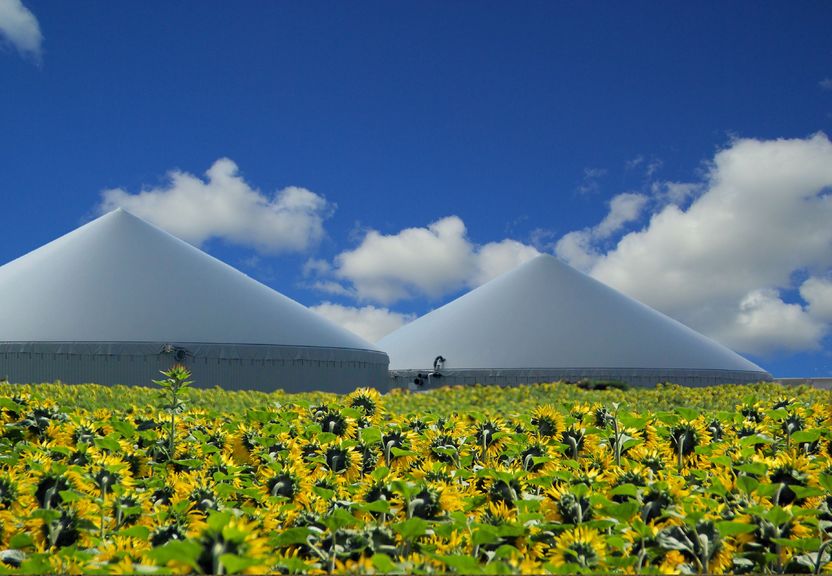
The Department of Climate Change has announced its consultation on using crops to create biogas.
The Soil Association, an environmentally friendly farming group, has welcomed the report, saying "for the first time, environmentalists can be excited about cuts to renewable energy subsidies."
Specifically, the organisation has welcomed new proposals to restrict the use of crops, such as maize, for anaerobic digestion (AD - to produce biogas for energy).
If approved, these proposals, set out in a consultation document from the Department for Energy and Climate Change (DECC), will come into force in January 2017.
The Soil Association said: "The changes could halt the expansion of maize growing, and the building of huge new AD plants, which are changing the face of the countryside, adding large numbers of lorry and tractor and trailer movements to small rural roads, and damaging our soils."
In July 2015, the Soil Association published 'Runaway Maize', showing evidence that the crop is 'threatening the future of farming and food security in the UK.'
Maize is probably the fastest expanding arable crop in the UK, up from 8,000 in 1973 to 186,000 hectares in 2015, with proposals for an additional 125,000 hectares in England by 2020.
The Soil Association said that maize is currently "responsible for environmental damage to soils, streams and rivers", and for the "rapid loss of land available for food production – all of which is made possible through double subsidies paid for by the UK taxpayer.
"In 2014, researchers found that 75% of late-harvested sites in South West England showed high or severe levels of soil degradation," the Soil Association added.
The Soil Association has made recommendations to policymakers, including the complete removal of the subsidies available for biogas derived from maize.
Maize is 'hitting the buffers'
Peter Melchett, policy director at the Soil Association, said; "Maize grown for AD, one of the most rapidly expanding crops in the UK, is hitting the buffers.
"Maize crops can do serious damage to soils and fresh water. The fact that farmers and anaerobic digester operators are being paid to harm these vital resources is a national scandal.
"It’s good news that the Government is considering taking action on the issues we have raised.
"Maize can play a useful role as a feed for cattle, although scientists have found it can decrease the quality of milk.
"It is possible to grow maize to better practice standards that reduce the risks to soils and the environment -some farmers are following good practice, but not enough of them.
"And AD plants using animal and other waste products can perform a useful function.
"But what is crazy is subsidising the use of good quality farmland to grow crops that damage soils and rivers to produce subsidised energy that creates rather than reduces environmental problems."
New proposals from the Department for Energy and Climate Change
The first proposal from DECC is the introduction of sustainability criteria for AD feedstocks.
Under this plan, crops grown for AD could no longer be sourced from land with a high biodiversity value or with a high carbon stock value, such as peatland, and a greenhouse gas emission limit would also be introduced.
"This proposal does nothing to protect good quality land capable of growing food from being used to grow crops for AD," the Soil Association commented.
"In addition, the greenhouse gas emission limit would be impossible to police, in part because of the cost of doing so, and in part because of the difficulty of measuring greenhouse gas emissions from farming operations (a point made repeatedly by Defra in climate change discussions)."
The second proposal put forward by DECC is to restrict Feed-in Tariff (a government subsidy for renewable energy production) payments on the basis of the feedstock used.
One option under this proposal would be to restrict payments to electricity produced solely from waste; the second option would be to restrict payments to electricity derived from material other than waste and residues to 50% of the total biogas yield.
The Soil Association believes that the first of these recommendations, to restrict payments to energy produced from waste, is the only option that will "ensure public money is not encouraging AD operations that do not in practice lead to overall reductions in greenhouse gas emissions."
Life-cycle assessments have concluded that maize grown for AD offers no overall saving of greenhouse gas emissions.
The Soil Association strongly agrees with the Government when it states that ‘the primary purpose of agricultural land should be for growing food’.
The association says it opposes "any financial incentive which encourages farmers to cultivate crops which do not provide a benefit either to our food system or to the environment."
Concerns about an energy sector reliant on soil-damaging maize have received strong All-Party support from the House of Commons Environmental Audit Committee’s just-published Soil Health report.
The Committee called for action to ensure that the subsidy regime does not negatively impact on soil health.
A second all-party political group, the All Party Parliamentary Group on Agroecology, has also just published a series of three short reports, in which they conclude that: "In the absence of any effective regulation on the growing of maize, and in light of the public subsidies available for renewable energy which incentivises its cultivation, significant concern has been expressed that this is a practice which urgently needs to be reviewed."
